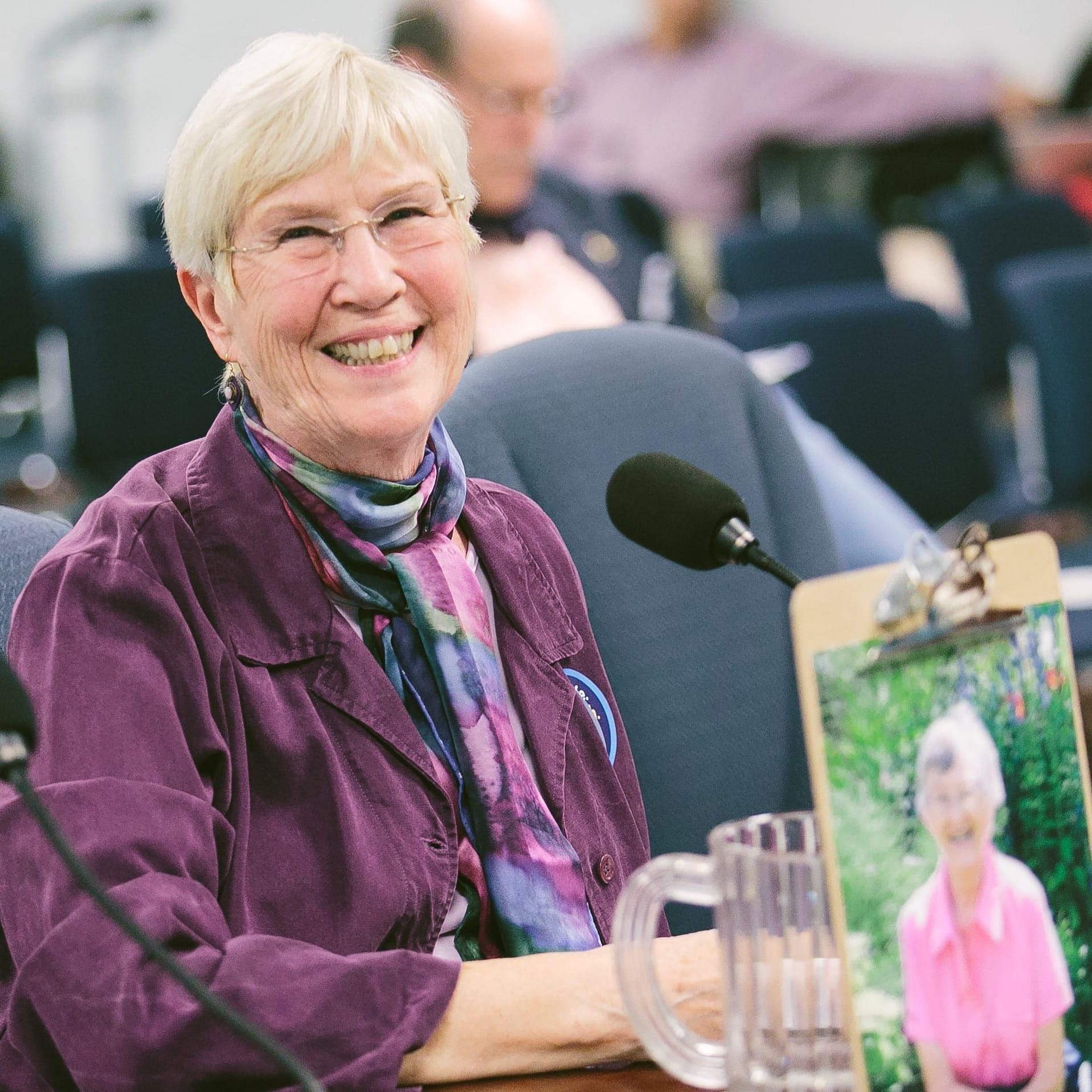
Let me tell you a little about my sister, Joan Kline. She was a stay-at-home mom who, with her husband of 50 years, raised three wonderful, strong children. Her passions in life were gardening, birds, and the Green Bay Packers.
She was an active Unitarian and contributed her exceptional organizational skills as a volunteer in the Middlebury, Vermont congregation. She believed there was a right way and a wrong way to do everything. You would never see her put an empty toilet paper roll in a wastebasket; it belonged in the recycling bin.
This attitude included her thoughts on choices at the end of life.
Joan and I traditionally attended the Burlington Jazz Festival together, so in June 2015 I drove from my home in New York to her home in Vermont. As soon as I opened the door, I could see that she was not at all well. We went to the festival, with Joan in a wheelchair, and then on Monday to her doctor’s office.
The doctor took some tests, looking very grave. A few days later, we were back in the doctor’s office, where Joan was informed that she had terminal, incurable, ovarian cancer and had months or possibly just weeks to live. She immediately asked her rather skeptical doctor to prescribe medication that would give her the choice of ending her life if the appropriate moment arrived.
At that point, she did not know how her disease would progress, but knowing that the option would be available to her gave her great comfort. She was determined to meet all the requirements of the Vermont law in regard to oral and written notice, consultation with a second doctor and prescribed waiting periods, which she did.
Joan was able to live alone in her home with some help for more than a month. When it became clear that she needed help 24/7, her daughter and I alternated caring for her as she became progressively weaker, until she could no longer move her body or care for herself in any way.
One morning, two months after her diagnosis and initial request for a prescription, as she awoke, she said to me, “Nancy, today’s the day.” Her two sons, who had been visiting frequently, were at their homes in Colorado and California. I said, “Let’s see how long it will take to get the boys back.” She replied, “OK, tomorrow.”
The boys arrived at midnight and were able to greet and hug their mom the next morning. Joan had been having days with waking hours briefly in the morning followed by a long nap and waking hours in the afternoon, so we mutually decided that the afternoon would be a good time.
I told her that we would like to toast her and she said, with a sly smile, “Champagne!”
While she slept, one of the boys went for the champagne and her daughter went to the pharmacy to pick up the prescription.
When Joan awoke in the afternoon, we were all gathered around her – myself and my husband, her two sons, daughter, and daughter-in-law, her minister, a good friend and a hospice nurse. She looked around and said, “Give me a few minutes! I need to be awake for this!” A bit later, we began the toasting, each person saying what she had meant to them, thanking her.
She thanked each of us and said that she was content and grateful for a wonderful life, a long and happy marriage, her children, and all the places she had lived and the things she had done.
We had four tiny vials of medication. The three children and I each handed her a tiny vial, which she drank herself. We held her hands and put our hands on her body as she slowly drifted into a deep sleep. She died two hours later.
That loving, beautiful, peaceful, and chosen transition allowed us to bond with her and she with us in a way that is beyond description.
Our grieving is mixed with admiration for her courage and determination and with pride that we as a family came together in mutual support of her decision.
Mail contributions directly to:
Compassion & Choices Gift Processing Center
PO Box 485
Etna, NH 03750